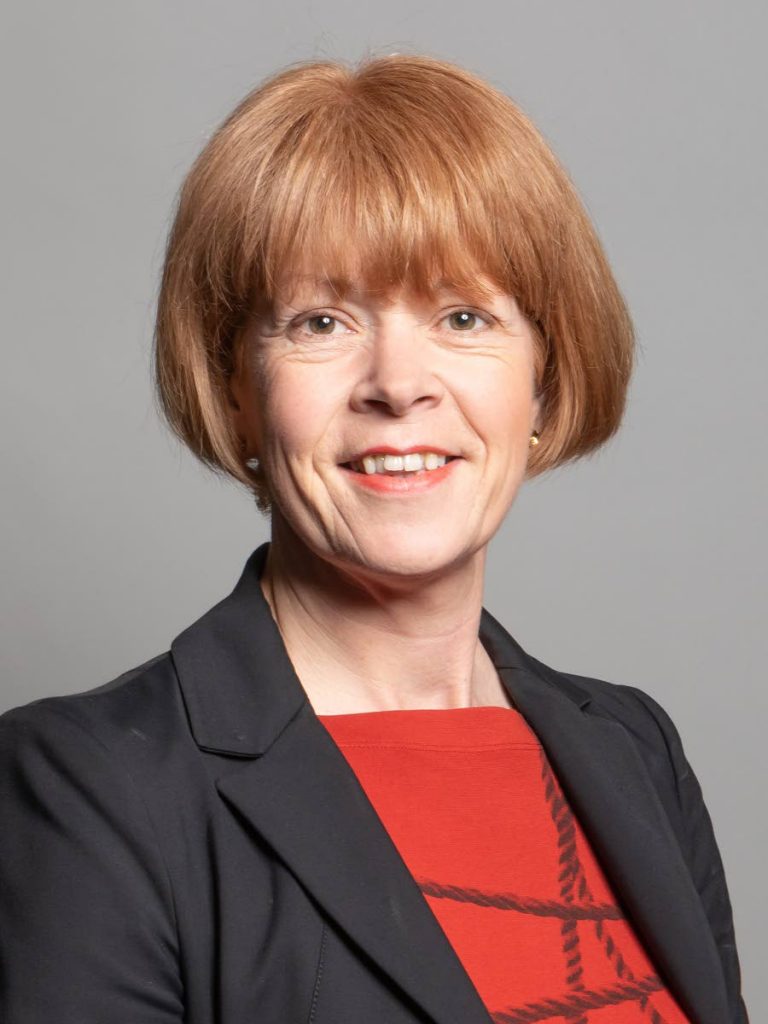Vaccines for all

WENDY MORTON
THE WORLD faces a challenge unlike any other in our lifetime. The coronavirus pandemic is not only a huge public health emergency directly affecting millions of people around the globe and changing the way we live, work and socialise, it is also an economic crisis unseen since the early 20th century. The challenge that we in the international community face is unparalleled.
In this interconnected world, we cannot effectively end the pandemic, or truly begin to recover, until everyone is protected against its deadly effects. The priority of any government is the health and security of its citizens, but no single country can win against this invisible enemy on its own.
Nowhere has escaped this pandemic, but the impact has perhaps most keenly been felt in Europe and the Americas, which have seen a tragic loss of life and a devastating impact on the economy. This is why I am so pleased to work closely with my counterparts across Latin America and the Caribbean, building on our shared experiences to lead efforts for a collaborative global response.
Defeating covid19 needs us to work together to ensure that vaccines, tests and treatments are available to everyone.
This is why the UK co-hosted a major global event at the virtual UN General Assembly on September 30, alongside the UN Secretary General, the World Health Organization, and the government of South Africa to accelerate progress on this agenda.
The UK government has been committed to driving forward a global response to this crisis from the outset. In March, our Prime Minister Boris Johnson appealed to G20 leaders to work together to develop vaccines, and make sure they are available to all those who need it.
In May, the UK co-led the Coronavirus Global Response Pledging Conference, raising £6.5 billion (US$8 billion) for covid19 response efforts. We also hosted the Global Vaccine Summit on June 4, raising over £6.9 billion (US$8.8 billion) to fund Gavi, the Vaccine Alliance, up to 2025. The UK alone will invest £1.65 billion in Gavi over five years – the biggest contribution by any donor.
The UK is also one of the biggest global funders of the World Health Organization. Last week at the UN General Assembly, Prime Minister Boris Johnson announced that we will contribute £340 million over the next four years to the WHO, an increase of 30 per cent.
The UK is also leading efforts to drive global collaboration in the development of new vaccines. To date, this includes committing over £130 million to fund Oxford University and Imperial College’s covid19 vaccine research. We have already seen great progress, with clinical trials now at an advanced stage for both.
However, we know that our national efforts will count for little unless reinforced by international co-operation. This is why the UK is also one of the biggest donors to the covid19 global response, pledging up to £790 million of UK aid, including to the Coalition for Epidemic Preparedness Innovations (CEPI), the Covid19 Therapeutics Accelerator, and the Foundation for Innovative New Diagnostics (FIND).
Our relationship with Latin America and the Caribbean is one of partnership, working together to come up with innovative solutions to support the global good, and this is crucial when facing the challenges of covid19.
In August, I had the pleasure of co-hosting an event on vaccine development and access with my Mexican counterparts, which brought together politicians and experts from 27 Latin America and Caribbean countries, including TT and the Pan-American Health Organisation and multilateral banks. This event raised awareness and understanding of the immense challenges we face in developing, financing, distributing and ensuring equitable access to any future covid19 vaccines.
The COVAX Facility is key to achieving this objective. COVAX supports the development and manufacturing of a range of potential covid19 vaccines. Developing a vaccine is a huge scientific and industrial challenge, and individual vaccines have a high chance of failure. Through COVAX, all participating countries, regardless of income levels, will have equal access to new vaccines.
The UK strongly supports the COVAX Facility, which is why at the UN General Assembly last week, in addition to setting out an ambitious five-point plan to prevent future pandemics, Prime Minister Johnson announced that the UK will contribute £571 million to COVAX to help find a safe and effective vaccine. Of this sum, up to £500 million will be for the COVAX Advanced Market Commitment, which will give lower and middle-income countries equitable access to vaccines that are developed.
COVAX allows countries to hedge their bets by providing the opportunity to access a wide range of potential vaccines. However, it currently remains critically underfunded. We must all work together if we are to develop safe, effective, and affordable vaccines, so we encourage all nations to join us in contributing to the facility.
This is by no means the limit of the UK’s involvement in the fight against covid19. In Latin America, we continue to work closely with our friends and partners to ensure that we can successfully beat the virus together. In the Caribbean, £100,000 was dedicated to an initial UK CSSF initiative in collaboration with the Caricom Implementation Agency for Crime and Security (Impacs) and the Regional Security System to support the covid19 response of prisons in 12 Caribbean countries. Each TT Prison Service correctional facility also benefitted from the design and production of mist tunnels together valued at over £20,000. The UK has also made available an additional £60,000 to support the Government and civil society organisations in TT as they continue to respond to covid19.
No one country or region alone will be able to find and deliver all the answers needed to overcome this pandemic. We are all dependant on each other to get through this, and we will succeed through working together.
Wendy Morton is an MP and Minister for the European Neighbourhood and the Americas at the UK Foreign, Commonwealth & Development Office

Comments
"Vaccines for all"